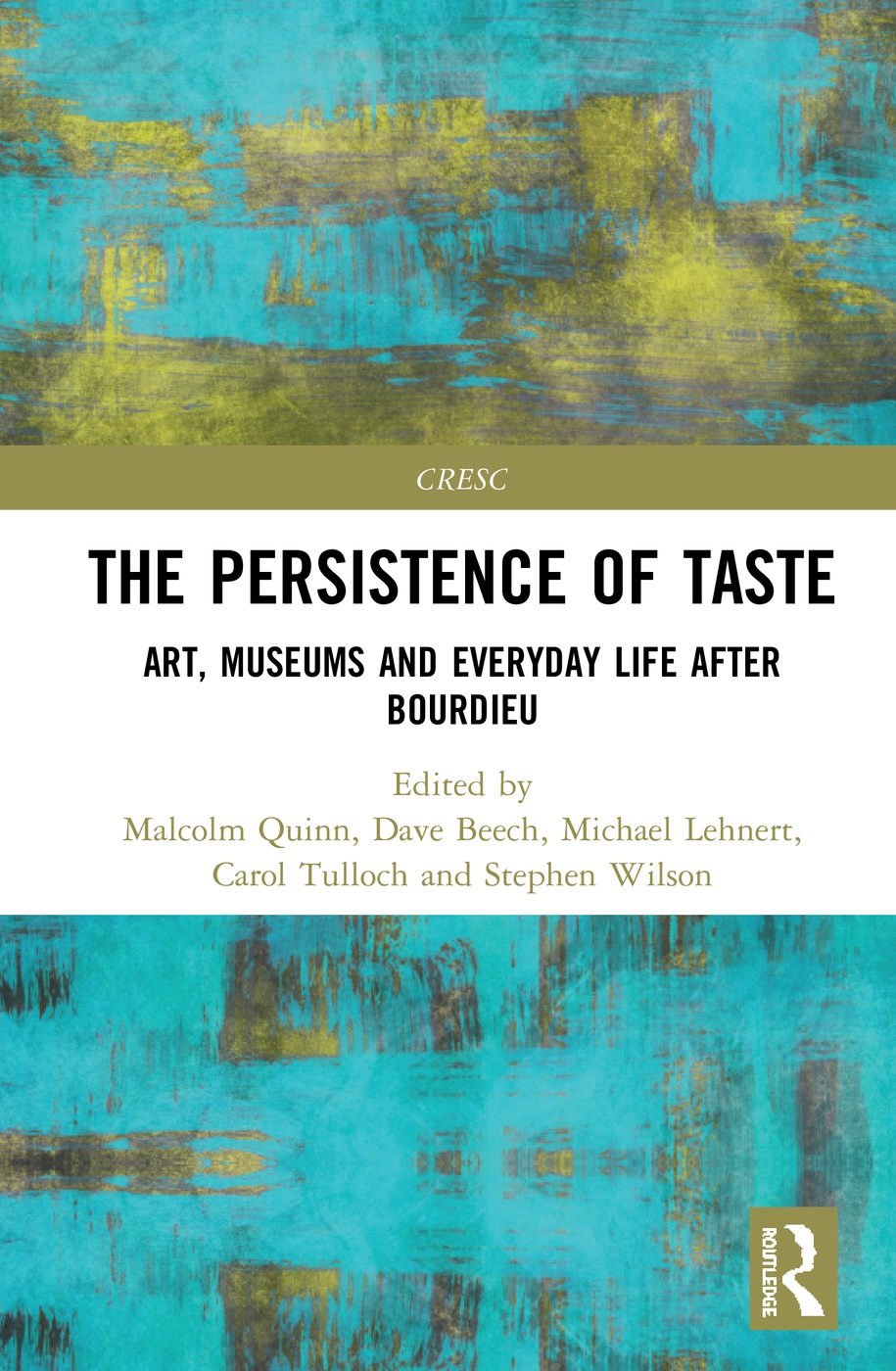
What is the meaning of taste today, both in our encounters with art and arts institutions and in our everyday lives?
Published May 2018 by Routledge ‘The Persistence of Taste; Art, Museums and Everyday Life after Bourdieu’ is a new book with significant input from UAL researchers, which asks why we still value our personal sense of taste in the twenty-first century, when cultural distinctions between ‘highbrow’, ‘middlebrow’ and ‘lowbrow’ culture seem to matter less and less.
The authors suggest that a key reason is that our personal tastes seem to give us autonomy and control over our lives in an increasingly consumerist world, however this book also suggests that the proliferation of algorithms that help us to make daily choices could mean that ultimately we’re losing some of this control.
Placing UAL at the centre of contemporary understanding of taste, the book is edited by UAL researchers Malcolm Quinn, Dave Beech, Carol Tulloch, Stephen Wilson and external researcher Michael Lehnert and has contributions from across the University with a third of the twenty-one chapters by UAL academics. Other contributors are global authorities in their fields including Tony Bennett, Penelope Curtis, Yuko Hasegawa, Ben Highmore, Peter Osborne and Penny Sparke. Looking to Japan, the book also examines taste in a transnational context.
Professor Malcolm Quinn commented:
“Distinctions of taste have allowed us to live within commercial society while trusting ourselves before we trust the brands, products and services that surround us. But we also need to consider the possibility that the development of algorithms to assist us in making choices may make this individual sense of taste less and less relevant. “
In Western Europe and America in the last century, discussion of taste was dominated by the work of the sociologist Pierre Bourdieu. In 2013 Turner prize-winning artist UAL Chancellor Grayson Perry delivered a Reith Lecture for the BBC titled ‘Democracy Has Bad Taste’. Perry’s lectures raised the question of how those who are involved in the arts contribute to the analysis of taste, and this book gives arts practitioners and educators a new kind of platform in debates on taste.
‘The Persistence of Taste’ offers an interdisciplinary analysis of taste as a social practice and was developed out of the 2014 ‘Taste After Bourdieu’ conference at Chelsea College of Arts, UAL. For the first time with this book, sociologists are united with artists and art educators, art historians, design historians, curators, art theorists and cultural historians, who engage with the practice of taste as it relates to encounters with art, engagements with cultural institutions and the practices of everyday life in national and transnational contexts. Integrating teaching and research, the book will make an excellent resource for pedagogy within UAL and for wider audiences.
- Read more on the subject of taste by Professor Malcolm Quinn
- Find out about UAL Research

